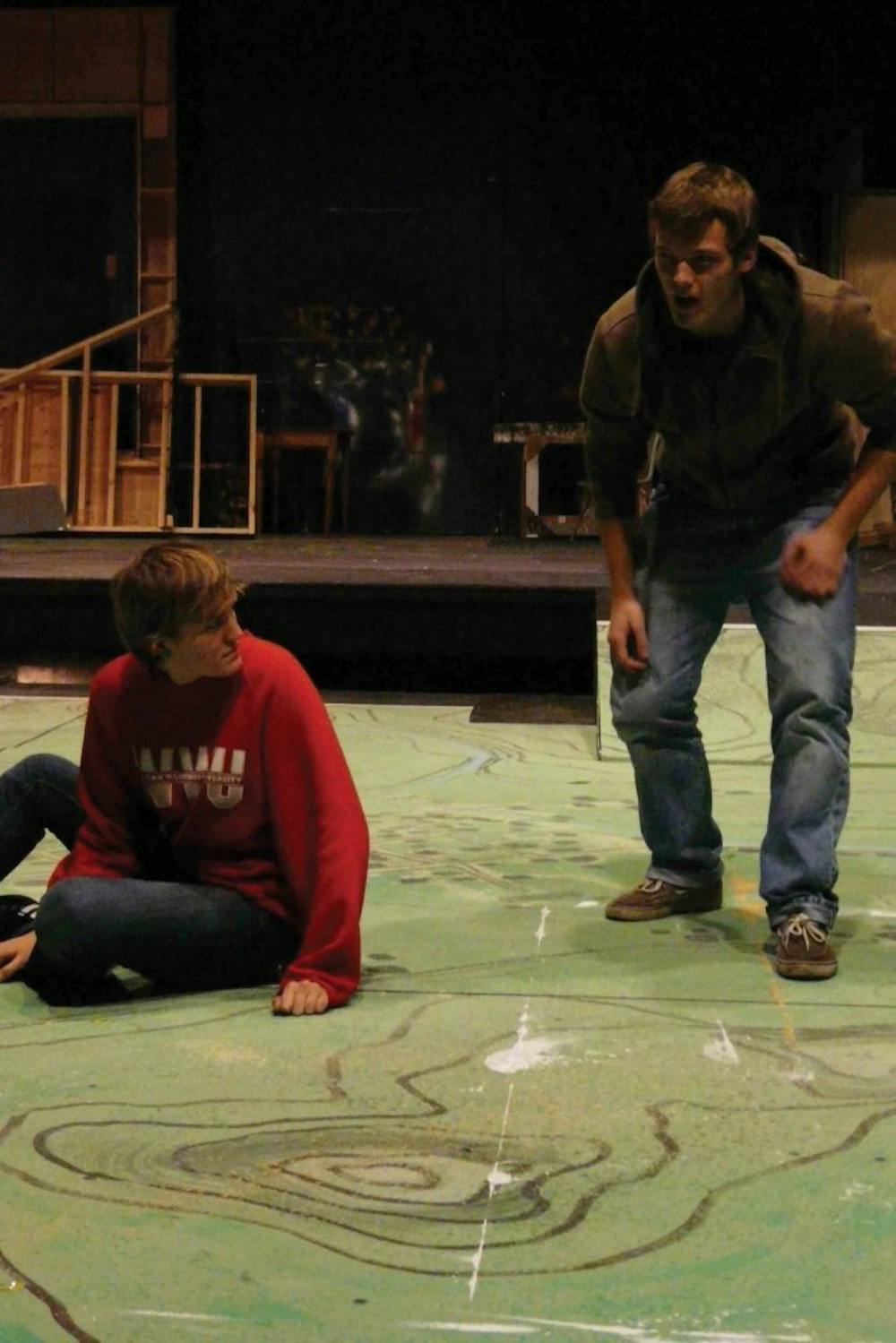(Alissa White -- The Beacon)
By Laura Frazier, Staff Writer -- frazier13@up.edu
Professor Laura McLary has taken the title of her German 408 class, German Play Reading and Performance, quite literally.
At 6:00 p.m. in Mago Hunt Recital Hall on Dec. 4, McLary's 26 students will perform plays they have studied in class.
For the first part of the semester, students read a variety of German plays written in years ranging from 1839 to 2001. For their final project students are preparing to act out the plays they studied.
Students chose their parts and groups according to the plays on which they wanted to work. Then the play had to be condensed or reformatted to run for 20 minutes.
"They can take little snippets out of the play to get the arc from the beginning to the end," McLary said.
Senior Juliet Zimmer, whose group is performing the play "Happy," says the format can be challenging.
"You just have to make sure it's one cohesive 20-minute play," she said. "It's been hard to get across the emotion and structure in that short of time."
Students are required to have their lines memorized but must also focus on the theatrical aspects of the production, McLary says.
McLary says most of her students have no theater experience.
"A lot of them have never acted before," she said. "For some of them it's been a bit of a stretch."
Senior Annemarie Medrzycki is working on "Frühlings Erwachen," which has been translated into the musical "Spring Awakening." Medrzycki agrees the challenge is more in the acting.
"It's hard as a group trying to figure out the right dynamics," she said. "We definitely are all out of our element."
It can also be hard to focus on both the correct German pronunciation in conjunction with the theater aspects, she says.
"None of us are perfect in German anyway," Medrzycki said. "We are trying to figure out the emotion in the lines and trying to act it out as well. There has been a lot of difficulty overcoming that blockade."
Zimmer thinks the project requires a group effort with the acting.
"It's been an interesting process dissecting the play and figuring out how to interact with each other," she said.
However, students seem to be handling the actual German just fine, McLary said.
Zimmer is confident with her group's proficiency in German, though the theatrical part is challenging.
"In order to be in the class you have to have a high level of German," she said.
McLary was particular when she chose plays for the class. "I was looking for ones that are accessible, language wise," she said.
McLary first taught this class in 2001, and this is the fourth time she has had a class put on productions. In the past, the productions were very successful, she says.
Most importantly, Medrzycki says the plays are a good way to learn German.
"It's a different way of learning German," she said. "It's made learning it fun because you have to think outside of the box. What we have been doing in trying to develop it has been really good and helped to me to use my German."
Zimmer likes working on the play, as it helps students learn conversational German.
"Plays are a great way for students to get an idea of dialogue that is actually used," she said.
McLary says the UP theater department has been very helpful. It supplied students with costumes and sets, and made the Mago Hunt Recital Hall available.
McLary is hoping to get a variety of people to come to the show.
"Typically we have an audience that is pretty mixed. We get a good range of people that can speak German or are just there out of interest," she said.
There is a synopsis of each play in English for those who do not speak German.
When it's show time, it won't matter whether the audience speaks German or not. The production is for the students. "They get to showcase for their audience what they have accomplished," McLary said.
(Alissa White -- The Beacon)
(Alissa White -- The Beacon)








